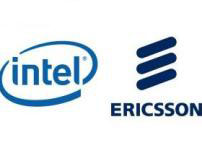  Ericsson and Intel Corporation, on Tuesday announced that they are launching the 5G Innovators Initiative (5GI2), an open industry initiative designed to create transformative experiences that change lives, businesses and society. The 5GI2 will join major equipment manufacturers, leading technology companies, industry leaders and top universities to explore, test and innovate with 5G network and distributed edge technologies to accelerate the adoption of 5G wireless and infrastructure innovation in the United States. Honeywell, GE and the University of California, Berkeley are the first participants to join the initiative.
The 5GI2 will first focus on the Industrial Internet of Things (IIOT) and develop pilots for application of technologies including augmented and virtual reality for first responder drone surveillance of hazardous environments and other uses. The pilots will include step-by-step blueprints of the network, cloud and 5G connectivity requirements – from speed and responsiveness to security and analytics. As other participants join, the pilots are expected to expand to other industries where 5G will enable societal improvements, such as autonomous driving, smart and connected cities, health care and media. The pilots will also facilitate accessibility and transparency of results, encouraging progress in support of 5G industry standards and validation of new business models.
“This program is totally in line with Ericsson’s already established 5G programs, such as 5G for Sweden and 5G for Europe. This collaboration brings together necessary competence from technology providers, industry partners and academia to find sustainable solutions to digitize and transform other industries,” said Ulf Ewaldsson, chief strategy and technology officer of Ericsson.
“5G is not simply about making smart phones faster. It’s about the machines and things that will deliver an entirely new smart and connected future. Building our 5G future requires a new approach to industry collaboration and development. The 5GI2 initiative combines technological strengths and intellectual capital from each of the participants to build step-by-step blueprints for how early applications of 5G connectivity, IoT and cloud services will bring new forms of value to multiple industries,” said Asha Keddy, vice president and general manager of Next Generation Standards, Intel Communications and Devices Group.
“The ability to move large amounts of data across mobile networks is critical to realizing the promise of the Internet of Things. Because of this, 5G technology will be a key enabler as we continue to develop and deploy new connected solutions to improve worker productivity, safety and asset performance across our customers’ global supply chains. It will help us bring to market new IoT solutions for aircraft, buildings, homes, industrial plants, logistics providers, manufacturers and retailers,” said Suresh Venkatarayalu, chief technology officer, Honeywell Safety and Productivity Solutions.
“Industrial companies looking to optimize their assets and operations need connectivity from the edge to the cloud. Connecting those assets to GE’s Predix platform and using the innovations emerging from 5G wireless will help them unlock efficiency, increase manageability and drive sustainability. Building a thriving ecosystem of innovators who use the next generation of digital connectivity to sustain and surprise our customers – in industries ranging from manufacturing to health care – is key to everyone’s success,” said Peter Marx, vice president, advanced concepts, GE Digital.
“We believe 5G will be a key technology that will enable our research in RISELab at UC Berkeley on building systems to provide real-time execution on live data with strong security. In particular, 5G would give us unprecedented flexibility in implementing sophisticated functionality across edge devices, edge clusters and clouds. We pride ourselves for interdisciplinary collaboration and believe we are in a unique position to explore new applications, use cases, and business models for 5G that will ultimately realize its potential. We are excited to join this 5G Innovators Initiative,” said Ion Stoica, professor of computer science at UC Berkeley and Director of RISELab. |